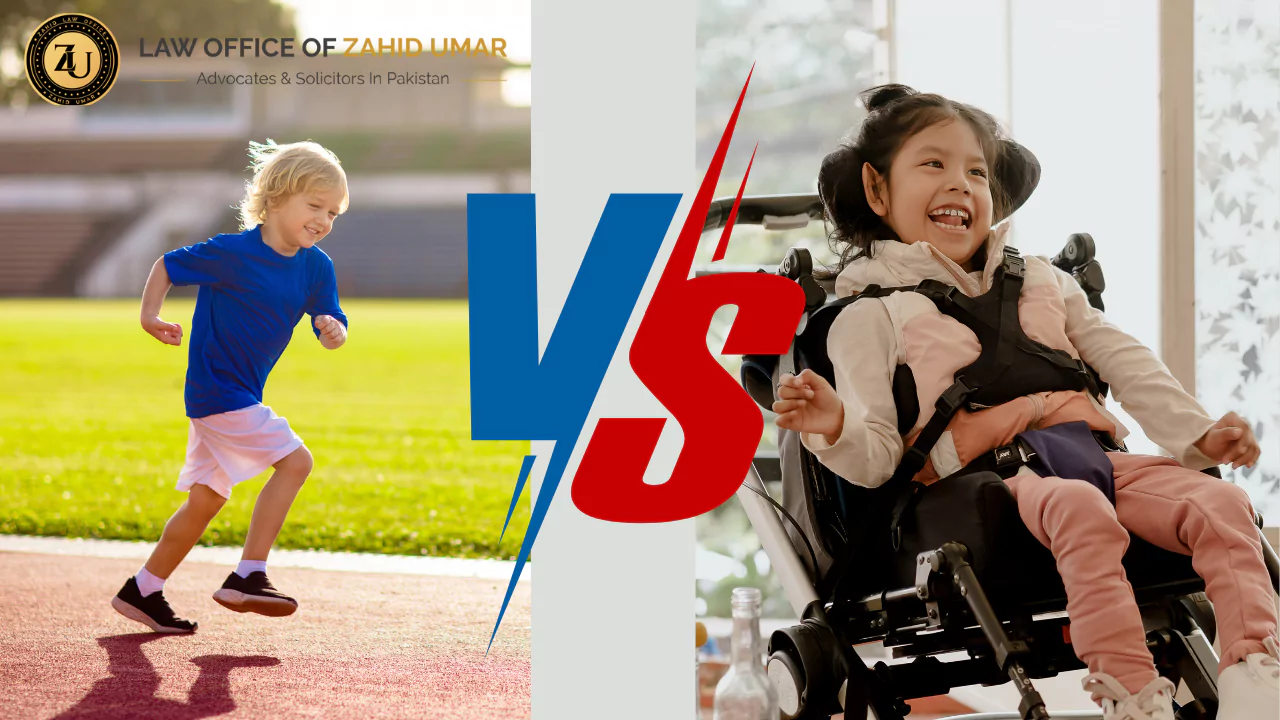Guardianship Explained: Minors vs Disabled Persons
Guardianship is when a person is legally chosen to care for someone who cannot take care of Personally. In Pakistan, there are laws that protect minors or children and disabled persons by providing guardianship. While guardianship for both of these groups is similar, there are some important differences. In this article, we will explain the key points, purposes, and processes related to guardianship for minors and disabled persons.
What is Guardianship?
Guardianship is when a person (the guardian) is given legal authority to make decisions for someone who cannot manage their own life. These decisions can be about health, education, and money. Guardianship ensures that people who need help, such as children or those with disabilities, are well cared for. A Legal Guardianship Certificate is an official document that confirms the guardian’s legal authority to make these decisions and manage the affairs of the individual under their care.
Guardianship of Minors (Children under 18)
In Pakistan, minors are usually children under the age of 18. Guardianship for minors means that a responsible adult (usually a parent) is in charge of the child’s care. Parents usually automatically become the guardians of their children. But if a parent can’t take care of the child, the court can appoint another person to be the guardian.
Guardianship for minors generally ends when the child turns 18, as the child is considered capable of making their own decisions. However, if the minor has special needs, the guardianship might continue till disability ends.
Guardianship of Disabled Persons
Guardianship for disabled persons refers to when someone is assigned to take care of a person who cannot handle their own affairs due to a disability. This can apply to both children and adults. Guardianship for a disabled person might last a lifetime, depending on how serious the disability is.
In Pakistan, the court assigns a guardian for disabled persons. The court checks the level of disability and chooses someone to handle the person’s health, finances, living arrangements and his property. Guardianship for disabled persons can last as long as the person is unable to take care of themselves.
Key Differences Between Guardianship of Minors and Disabled Persons
While guardianship for both minors and disable persons is meant to ensure their care, the main differences are in how long it lasts and what it focuses on.
For Minors: Guardianship usually ends when the child turns 21, but it can continue if the child has special needs.
For Disabled Persons: Guardianship can continue for life if the person is unable to manage his own life due to any disability.
The process for appointing a guardian is also different. For minors, the court usually assigns guardianship to the parents. But for disabled persons, a court must appoint a guardian, and this may involve a more formal process.
The purpose of guardianship also differs. For minors, it is about protecting and helping the child until they can care for themselves. For disabled persons, it is about providing ongoing care and managing important decisions related to their health and finances.
Guardianship Process in Pakistan
In Pakistan, if you need guardianship for a minor or a disabled person, you must go to the guardian court. The court will review the situation and choose the best person to be appointed as the guardian. Usually, the court gives guardianship to the parents of a minor, but if the parents are not able to care for the child, the court may assign another guardian.
For disabled persons, the court will appoint a guardian after checking how much help the person needs. This helps ensure that the disabled person gets the care they need, whether they are a child or an adult.
Can Guardianship Be Changed or Ended?
Yes, guardianship can be changed or it may come to an end if necessary. For minors, guardianship usually ends when the child turns 21. However, if the child has special needs, the guardianship can continue with court approval.
For disabled persons, guardianship might continue throughout their life, but if the person becomes able to care for themselves, the court can end the guardianship.
Conclusion
Guardianship is important for protecting and caring for people who can’t take care of themselves. Guardianship for minors and disabled persons serves the same basic purpose Confirming care but it works differently in terms of how long it lasts and what it involves. Guardianship for minors ends when the child turns 21, while guardianship for disabled persons can last for life. If you need legal assistance regarding guardianship, you can consult Family Lawyer Zahid Law Office to guide you through the process and ensure the best care for those in need.

